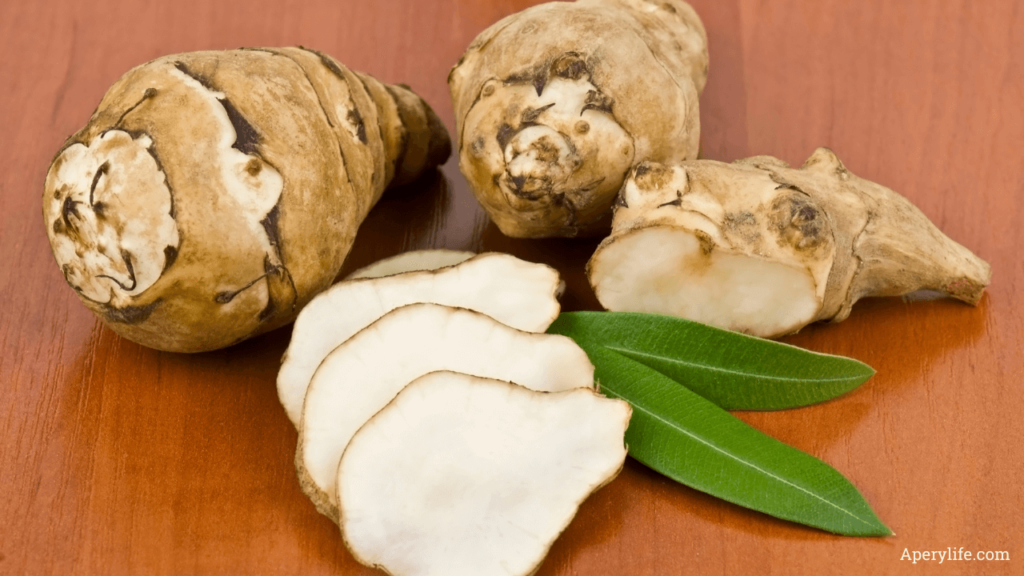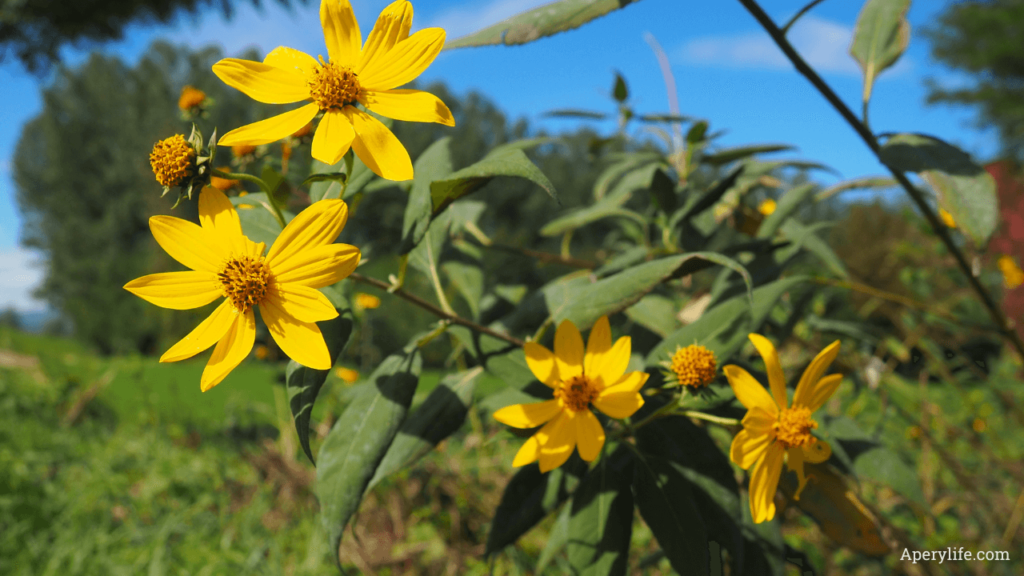Introduction
The Jerusalem artichoke (Helianthus tuberosus), also known as sunchoke, is a versatile and healthy tuber widely appreciated for its delicate flavor and nutritional benefits. Native to North America, it has spread to Europe and other parts of the world thanks to its adaptability and ability to thrive in various climates. With its crunchy texture and sweet, slightly nutty taste, Jerusalem artichoke is a valuable ingredient for both traditional and modern recipes.
Characteristics of Jerusalem Artichoke
Jerusalem artichokes are distinguished by:
- Appearance: An irregular, knobby root with a thin skin ranging from light brown to purple.
- Texture: Crunchy when raw and creamy when cooked.
- Flavor: Sweet, with hints of hazelnut and artichoke.
- Growth: A perennial plant belonging to the Asteraceae family, featuring large yellow flowers similar to small sunflowers.
Nutritional Properties and Health Benefits
Jerusalem artichoke is a highly nutritious food, offering numerous health benefits:
- Low Glycemic Index: Contains inulin, a soluble fiber that helps regulate blood sugar levels, making it ideal for diabetics.
- Rich in Fiber: Promotes digestion and intestinal health.
- Vitamins and Minerals: A good source of iron, potassium, magnesium, and vitamin C.
- Low Calorie: Perfect for low-calorie diets due to its low calorie content.
- Prebiotic Properties: Inulin acts as a prebiotic, nourishing beneficial gut bacteria.

Culinary Uses
Jerusalem artichoke is a versatile ingredient suitable for various preparations:
- Raw: Ideal for fresh salads, thinly sliced and dressed with oil and lemon.
- Cooked: Perfect when boiled, steamed, or roasted.
- Purees: Excellent for creating creamy purees, either alone or mixed with potatoes.
- Soups: Adds creaminess and a delicate flavor to velvety soups.
- Side Dishes: Sautéed with garlic and parsley, it makes a simple and tasty side dish.
- Chips: Can be fried or dried to make crispy and healthy snacks.
How to Grow Jerusalem Artichoke
Jerusalem artichoke is a hardy and easy-to-grow plant:
- Climate and Soil: Prefers temperate climates and well-drained soil but adapts to less fertile soils as well.
- Planting: Tubers are planted in spring at a depth of about 10-15 cm, with 30-40 cm spacing between plants.
- Watering: Requires regular watering, especially during growth periods.
- Plant Care: Grows rapidly and needs minimal care, but its spread should be controlled as it can become invasive.
- Harvesting: Takes place in autumn or early winter when the leaves begin to dry out. Tubers can be left in the ground and harvested as needed.

Fun Facts About Jerusalem Artichoke
- Curious Name: The term “Jerusalem artichoke” originates from a mix-up with the Brazilian indigenous tribe Tupinambá.
- Potato Alternative: During World War II, Jerusalem artichokes were often used as a substitute for potatoes.
- Sustainability: A low-impact crop that requires little maintenance and enriches the soil.
- Traditional Use: In some Italian regions, it is a key ingredient in traditional dishes like soups and casseroles.
Precautions
Despite its benefits, Jerusalem artichoke requires some attention:
- Cleaning: The thin skin can be left on or removed, but it should be washed thoroughly.
- Moderation: Consume in moderation, as inulin may cause bloating in some individuals.
- Storage: Store in a cool, dry place, away from direct light. It can be refrigerated to prolong freshness.
Conclusion
Jerusalem artichoke is a unique ingredient that combines culinary versatility with health benefits. Whether used in traditional dishes or modern recipes, this tuber represents a flavorful and sustainable choice to enrich your table.
All rights reserved © Copyright Aperylife.com